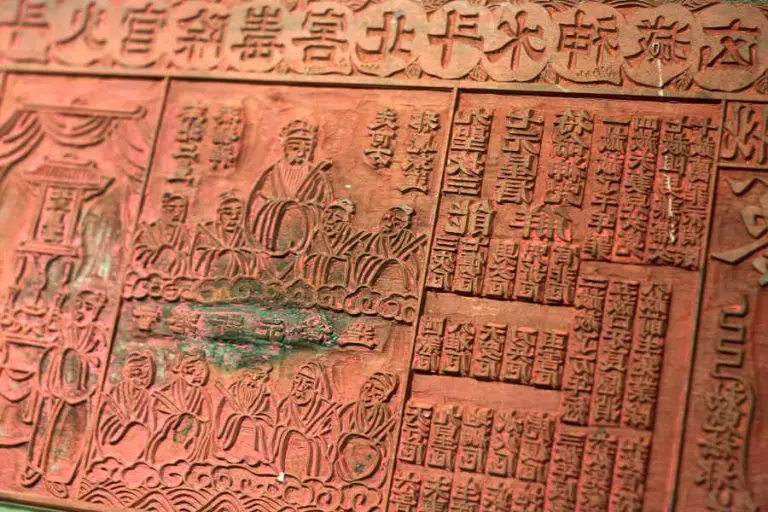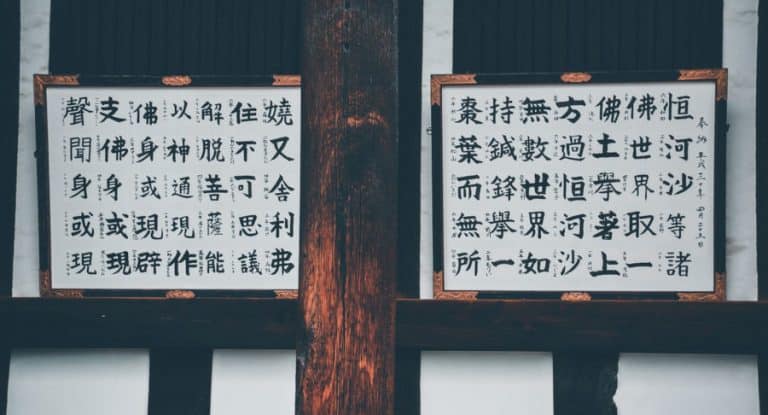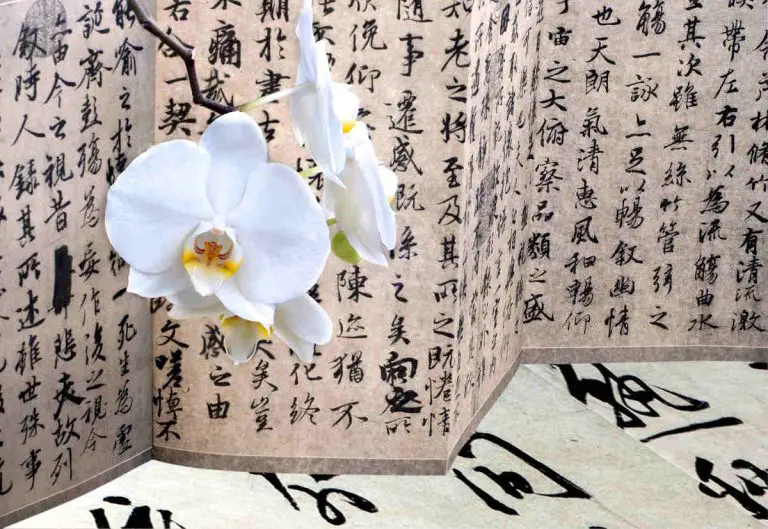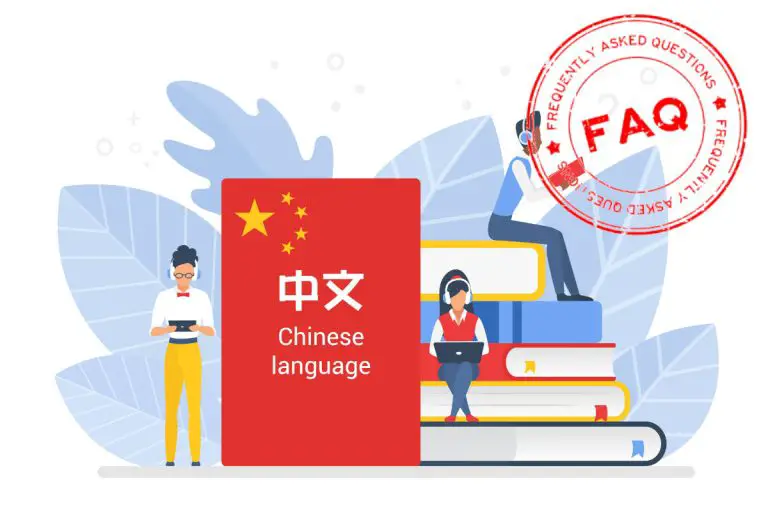Imagine strolling through a bustling marketplace in Shanghai, the aroma of delicious street food swirling in the air. You spot a vendor selling exquisite silk scarves, but a language barrier prevents you from asking about the price. Fear not, intrepid traveler!
By equipping yourself with a handful of key Chinese phrases, you can navigate everyday situations with confidence and grace. This guide will be your trusty companion as you embark on your Chinese adventure, empowering you to interact with locals, ask for directions, and savor the unique culture of China.
Let’s gear up for greetings first. We’ll explore some essential phrases to kickstart conversations on a positive note. Ready to learn?
Basic greetings and introductions
In China, a warm “你好” (nǐ hǎo) or the more formal “您好” (nín hǎo) sets a friendly tone for interactions. Whether it’s a casual encounter on the street or a formal meeting, these greetings convey respect and politeness. Furthermore:
Common greetings:
- 你好 (nǐ hǎo) – Hello (informal)
- 您好 (nín hǎo) – Hello (formal)
- 早上好 (zǎo shang hǎo) – Good morning
- 下午好 (xià wǔ hǎo) – Good afternoon
- 晚上好 (wǎn shang hǎo) – Good evening
Introducing oneself:
- 我叫 (wǒ jiào) – My name is…
- 很高兴认识你 (hěn gāo xìng rènshi nǐ) – Nice to meet you
Polite expressions:
- 谢谢 (xièxiè) – Thank you
- 不客气 (bù kèqì) – You’re welcome
Examples:
- 你好,我叫李明。 (Nǐ hǎo, wǒ jiào Lǐ Míng.) – Hello, my name is Li Ming.
- 您好,早上好! (Nín hǎo, zǎo shang hǎo!) – Good morning!
- 谢谢你的帮助。 (Xièxie nǐ de bāngzhù.) – Thank you for your help.
Tips:
- When greeting someone older or of higher status, it is polite to use 您好 (nín hǎo) instead of 你好 (nǐ hǎo).
- It is customary to shake hands when meeting someone for the first time.
- When saying thank you, it is polite to make eye contact and nod your head.
- When someone says thank you to you, you can respond with 不客气 (bù kèqì) or 不用谢 (bú yòng xiè).

Related reading: “How To Travel in China Without Speaking Chinese?“
Ordering food in Chinese restaurants
Entering a Chinese restaurant is like stepping into a culinary adventure, and knowing how to navigate the menu is key to savoring the delights it offers.
When you’re ready to peruse the menu, politely request it with “请给我菜单” (qǐng gěi wǒ càidān), meaning “please give me the menu.” This courteous phrase signals your readiness to explore the gastronomic treasures awaiting you.
Dietary preferences:
- 我不吃 [Ingredient] (wǒ bù chī [Ingredient]) – I don’t eat [Ingredient].
- 我是素食主义者 (wǒ shì sùshí zhǔyì zhě) – I am a vegetarian.
- 我对 [Ingredient] 过敏 (wǒ duì [Ingredient] guòmǐn) – I am allergic to [Ingredient].
Common phrases for ordering:
- 我想要… (wǒ xiǎng yào…) – I would like…
- 请给我… (qǐng gěi wǒ…) – Please give me…
- 这道菜多少钱? (zhè dào cài duōshao qián?) – How much is this dish?
- 我要结账 (wǒ yào jiézhàng) – I would like to pay the bill.
Examples:
- 请给我菜单。 (Qǐng gěi wǒ càidān.) – Please give me a menu.
- 我不吃肉。 (Wǒ bù chī ròu.) – I don’t eat meat.
- 我想要一份炒饭。 (Wǒ xiǎng yào yī fèn chǎofàn.) – I would like a serving of fried rice.
Tips:
- When ordering food, it is helpful to know the Chinese names of the dishes you want.
- If you have any dietary restrictions, be sure to let the waiter or waitress know.
Asking for directions and transportation
Navigating through the bustling streets of China requires a knack for asking directions and understanding transportation options.
To inquire about a location, simply ask “Where is…?” by saying “…在哪里?” (… zài nǎlǐ?). This straightforward question helps you pinpoint your destination with ease, whether you’re seeking a landmark or a hidden gem.
Examples:
- 厕所在哪里? (Cèsuǒ zài nǎlǐ?) – Where is the bathroom?
- 地铁站在哪里? (Dìtiě zhàn zài nǎlǐ?) – Where is the subway station?
- 银行在哪里? (Yínháng zài nǎlǐ?) – Where is the bank?
Getting around:
- 打车 (dǎchē) – Take a taxi
- 乘坐公共交通 (chéngzuò gōnggòng jiāotōng) – Take public transportation
Examples:
- 我想打车去机场。 (Wǒ xiǎng dǎchē qù jīchǎng.) – I want to take a taxi to the airport.
- 请问,乘坐公共交通去火车站怎么走? (Qǐngwèn, chéngzuò gōnggòng jiāotōng qù huǒchē zhàn zěnme zǒu?) – Excuse me, how do I get to the train station by public transportation?
Expressing urgency:
- 快点 (kuài diǎn) – Faster
- 慢点 (màn diǎn) – Slower
Examples:
- 快点,我们要迟到了! (Kuài diǎn, wǒmen yào chídào le!) – Hurry up, we’re going to be late!
- 请慢点开,我害怕。 (Qǐng màn diǎn kāi, wǒ hǎipà.) – Please drive slowly, I’m scared.
Tips:
- When asking for directions, it is helpful to be specific about your destination.
- If you are taking a taxi, be sure to have the address of your destination written in Chinese.
- When using public transportation, be sure to have the correct change for the fare.
| English Phrase | Chinese Phrase | Pinyin |
| Where is…? | …在哪里? | … zài nǎlǐ? |
| How do I get to…? | 怎么去…? | Zěnme qù…? |
| Can you help me find…? | 你能帮我找到…吗? | Nǐ néng bāng wǒ zhǎodào… ma? |
| Is it far from here? | 这离这儿远吗? | Zhè lí zhèr yuǎn ma? |
| Excuse me, where is…? | 不好意思,请问…在哪里? | Bùhǎoyìsi, qǐngwèn… zài nǎlǐ? |
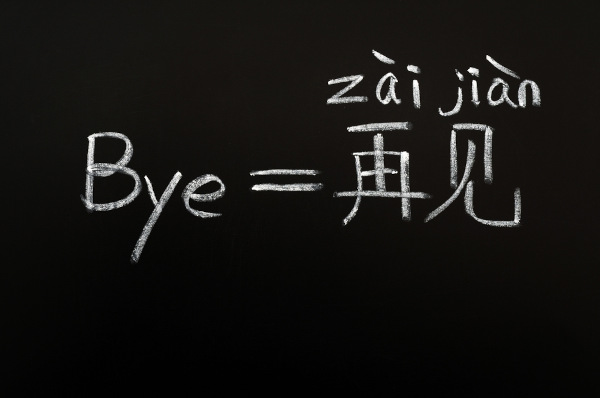
Related reading: Your Essential Guide to Navigating Chinese Social Media – Opens in new tab
Cultural nuances in polite expressions
Delving deeper into Chinese culture, understanding the subtleties of polite expressions enriches your interactions and fosters harmonious communication.
“谢谢” (xièxiè), meaning “thank you,” is a universal expression of gratitude. Whether receiving a gift, a service, or a kind gesture, saying “谢谢” acknowledges the kindness extended towards you. Its versatility makes it suitable for various situations, from the mundane to the profound.
Knowing when to use “您” (nín) instead of “你” (nǐ) reflects your respect for social hierarchies and relationships. “您” (nín) is a formal form of “you,” used to address elders, authority figures, or in professional settings. Conversely, “你” (nǐ) is more casual and appropriate for interactions among peers or with individuals of equal status. Paying attention to these nuances demonstrates your cultural sensitivity and respect for others.
Politeness extends to gracefully declining or refusing offers or invitations. “不好意思” (bù hǎo yìsi) translates to “I’m sorry” or “excuse me” and is used to politely decline or refuse without causing offense. Similarly, “没关系” (méi guānxi), meaning “it’s okay” or “no problem,” acknowledges the refusal with understanding and grace. These phrases maintain harmony in social exchanges, preserving relationships while respecting individual boundaries.
Examples:
- 谢谢您的帮助。 (Xièxie nín de bāngzhù.) – Thank you for your help.
- 不好意思,我不能帮你。 (Bù hǎo yìsi, wǒ bùnéng bāng nǐ.) – I’m sorry, I can’t help you.
- 没关系,我自己可以。 (Méi guānxi, wǒ zìjǐ kěyǐ.) – It’s okay, I can do it myself.
By mastering these cultural nuances in polite expressions, you navigate social interactions with grace and finesse, fostering meaningful connections wherever your travels may take you.
Conclusion
Congratulations! You’ve equipped yourself with a valuable set of phrases that will empower you to navigate everyday situations in China with confidence. Remember, mastering a new language is a journey, and even a few key phrases can go a long way in bridging the gap and fostering connections.
Embrace the adventure, don’t be afraid to make mistakes, and most importantly, have fun as you immerse yourself in the vibrant culture of China! 再见 (zàijiàn) – goodbye!
Related reading: Chinese as A Second Language – Is Learning Chinese Worth It?– Opens in new tab
Stay in Touch
 Join our newsletter by using the forms on this website or click here!
Join our newsletter by using the forms on this website or click here! Follow us on Google News
Follow us on Google News Follow us on Facebook
Follow us on Facebook
Feature Image from Depositphotos



